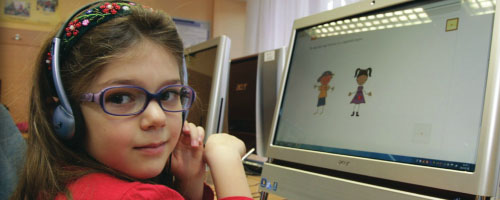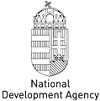Developing Frameworks for Diagnostic Assessment in Grades 1-6 in the Domains of Reading, Mathematics and Science
Utilizing the international scientific results, the frameworks for a regular assessment of the three main fields of literacy (reading, mathematics, science) have been developed in English and Hungarian languages involving leading national and international researchers.
Exploring the Possibilities of Expanding Diagnostic Assessment to Include Other Cognitive and Affective Domains
International researches have shown that if school assessment focuses exclusively on particular domains of knowledge and skill, teachers tend to pay less attention to other, equally important, curricular, elements; this results in the distortion of the original educational goals. It is essential that assessment programs consider and actively embrace a wide range of knowledge, skills and abilities. Therefore, assessment in the following seven domains will be piloted in this project: (1) social skills, (2) English as a foreign language, (3) visual skills, (4) civic education, (5) motivation, (6) health literacy and health behavior and (7) learning to learn.
Development of Item Banks for Diagnostic Assessments
In the three domains (reading, mathematics, science) altogether 1500 tasks are prepared. The tasks then are put together into booklets and thus are empirically examined, parametered and assessed on a sample of appropriate size and composition. The assessment takes place on a nationally representative sample of thousands of students. On the basis of the assessment results the tasks are parametered, which can be re-arranged into new, different booklets, thus allowing the developed task system to be suitable for summative examinations.
Implementing Technology-Based Assessment
One of the main aims of the project is to adapt the open-source software, the TAO (Testing Assisté par Ordinateur) platform, uploading tasks into it and testing them. TAO was developed at the University of Luxembourg for assessing the level of knowledge and other skills electronically. The other developmental task of the work package is to automatize the related functions (data analysis, feedback).
Development of Assessment Instruments for Students with Special Educational Needs
Parallel with the integration and inclusion of students with special educational needs the module is aimed at satisfying the need for a standardized assessment system that is comparable at least from the point of view of the development of basic skills. On the one hand with the involvement of experts of special education the module provides for an adequate number of tasks in the three main domains available for the assessment of the students who are slower or inhibited in learning. On the other hand the module enables the physically handicapped students to solve the tasks on their own with the help of the computer and special interfaces.
In-Service Teacher Training
One of the most important elements of the project is to create the human resource necessary for the application and development of the generated assessment system, interaction with and training of the teachers involved. During the accredited trainings the teachers and school leaders get acquainted with the knowledge necessary and useful for them about the tasks and opportunities of educational assessment and the diverse application of assessment data.
Secondary Analysis of the Results of Large-Scale International Assessments
The aim of this module is to correlate the results of the national and international assessments (eg.: OKM, IEA-TIMSS, OECD-PISA), to gather and analyze important data from the viewpoint of Hungary’s unique features and problems, organizing them into an instructive frame. The analyses show that in an international comparison in which fields the knowledge of the Hungarian students is adequate, and in which fields there is a need for development. The gathering of data marking the weaknesses of the Hungarian educational system will take place and will be compared with those countries’ data where the given problem is less typical. As a result of the module the conclusions of the extremely complex databases of the national and international assessments will become directly accessible for the professional public. During the work such new statistical methods will be adapted that will be applicable for the processing of the extant and also of the new ones resulting from the diagnostic assessments to be carried out later and provide new, not yet known results.










